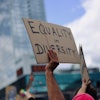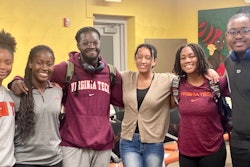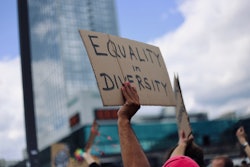Defenders of anti-racism in higher education have had a hellacious year. Between 2022 and 2023, government entities introduced 57 measures to restrict the teaching of critical race theory in colleges and universities. Forty bills were brought up to limit diversity, equity, and inclusion initiatives. And the U.S. Supreme Court gutted the use of affirmative action in college admissions.
 Taifha Alexander
Taifha Alexander
Taifha Alexander is director of the CRT Forward Project at the University of California, Los Angeles School of Law, which tracks efforts to restrict information about race and systemic racism. Alexander says there have been more anti-CRT efforts in 2023 than by this point last year. If the trend holds, anti-CRT measures will increase 14% this year, up from 2021 and 2022. She says she sees the nature of the bills changing.
“The anti-CRT measures that are being introduced are becoming more extreme and more mean,” says Alexander.
Early attacks on CRT were broad, banning the teaching of “divisive concepts,” such as that members of one race are automatically morally superior to those of another, or that a person must feel guilty because of the past actions of people of his or her race — a caricature of CRT, which teaches that racism can be embedded in facially race-neutral legal structures.
Newer efforts are much more specific. Alexander points to recently released standards for social studies curricula in Florida that were mandated as part of the Stop WOKE Act signed by Republican Gov. Ron DeSantis. The standards require history instructors to teach that enslaved people benefited from their condition because they learned valuable skills and that Black people also committed violence during race massacres.
“We’ve seen subject-matter revisionist history that’s untruthful,” says Alexander. “We’re going to have a generation of students who have gaps in their understanding of racial experiences and will have more difficulty address[ing] the most pressing racial and social justice issues of our time.”





















